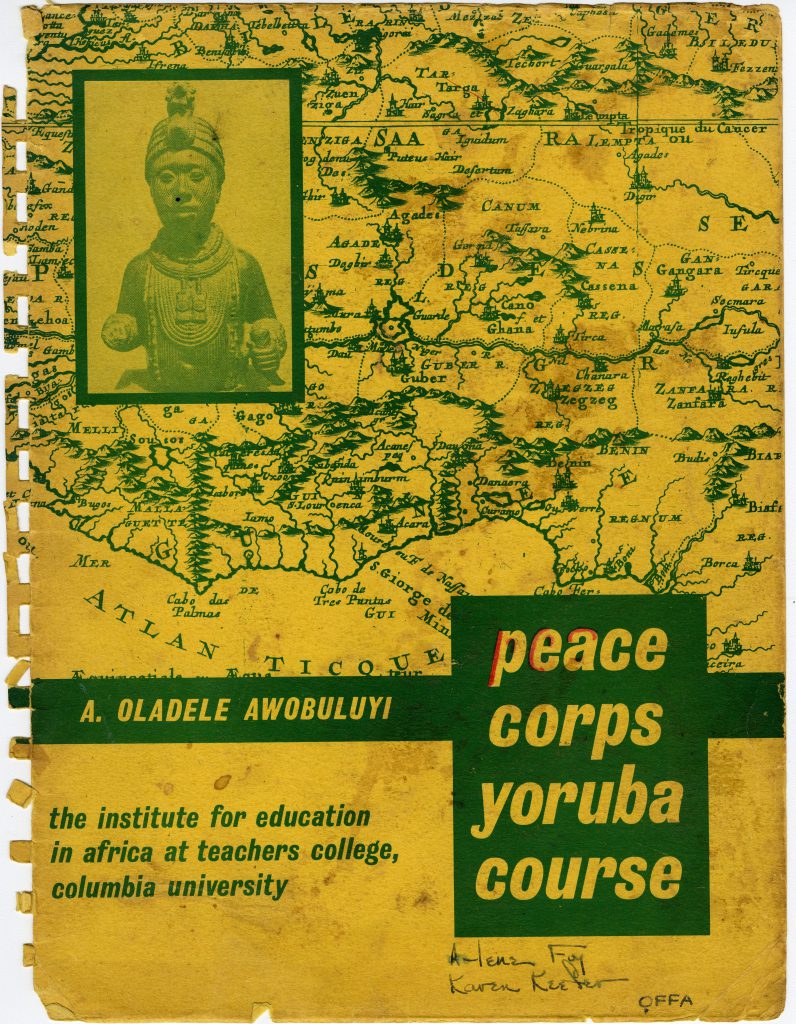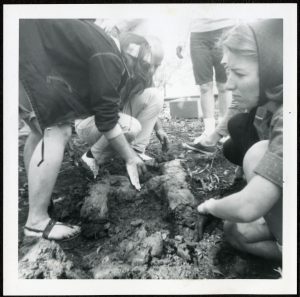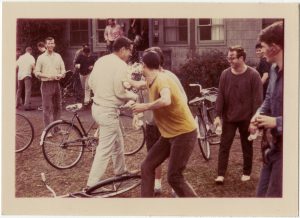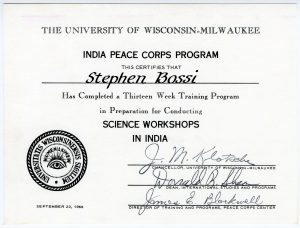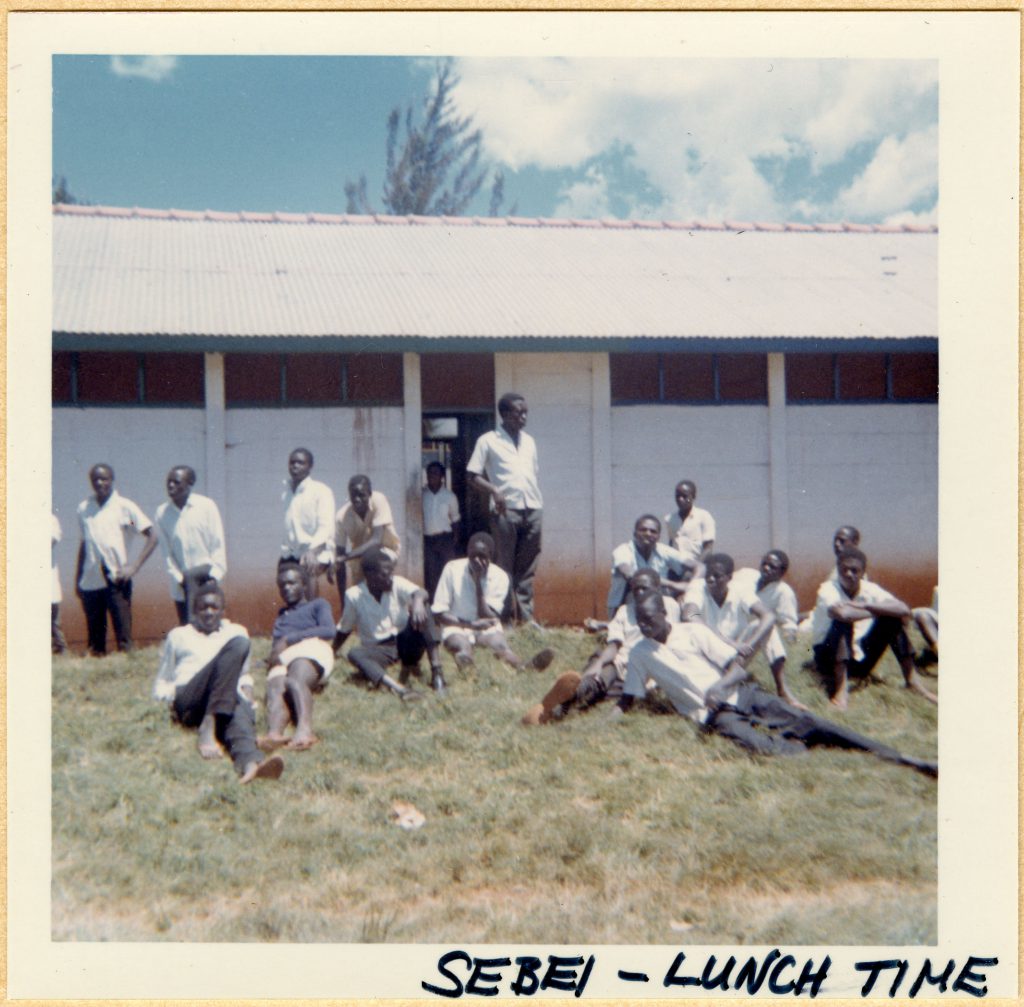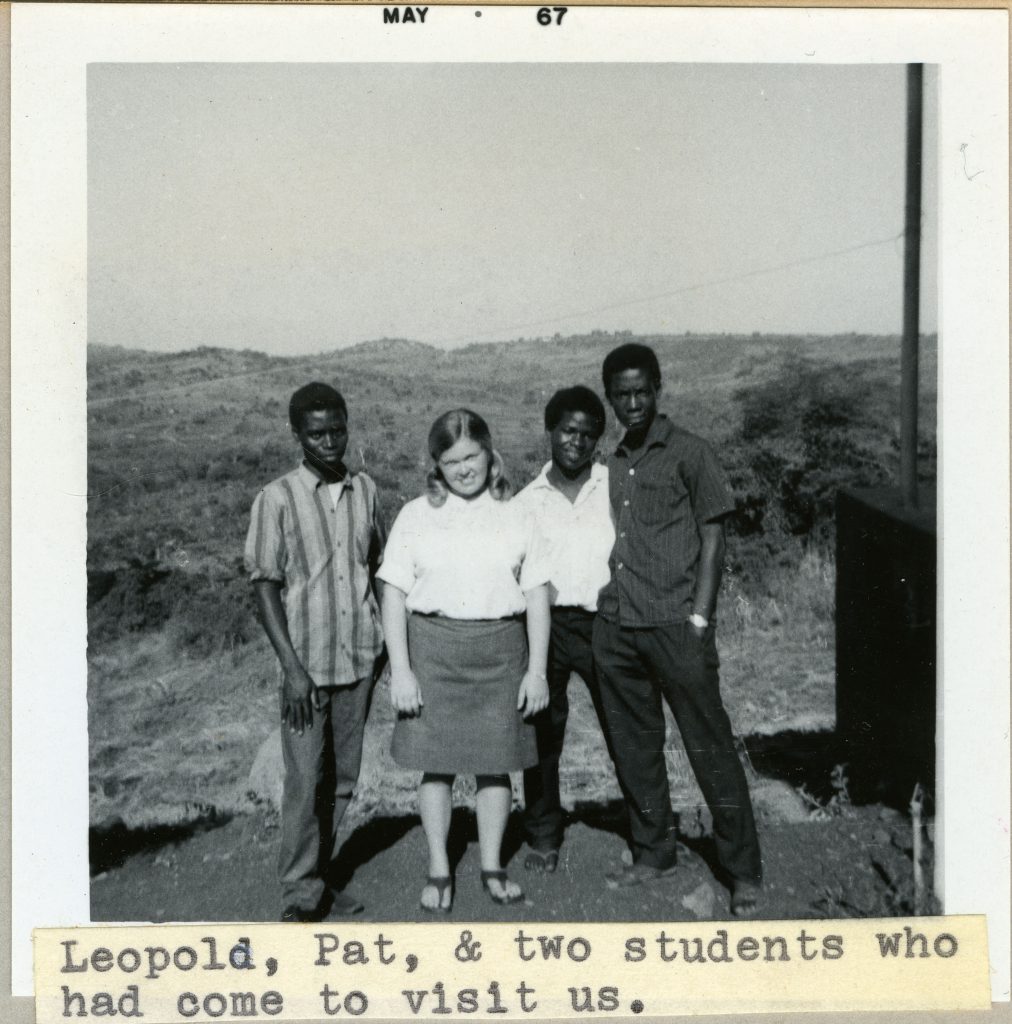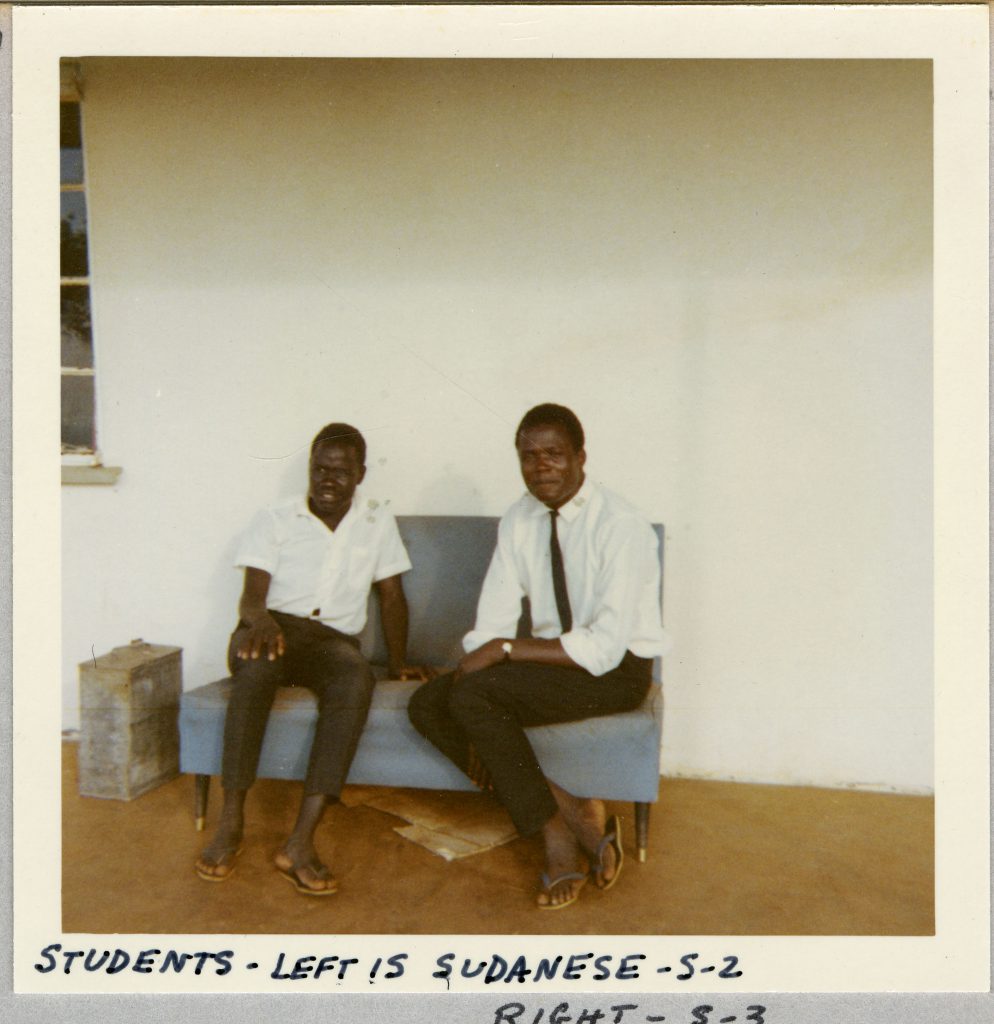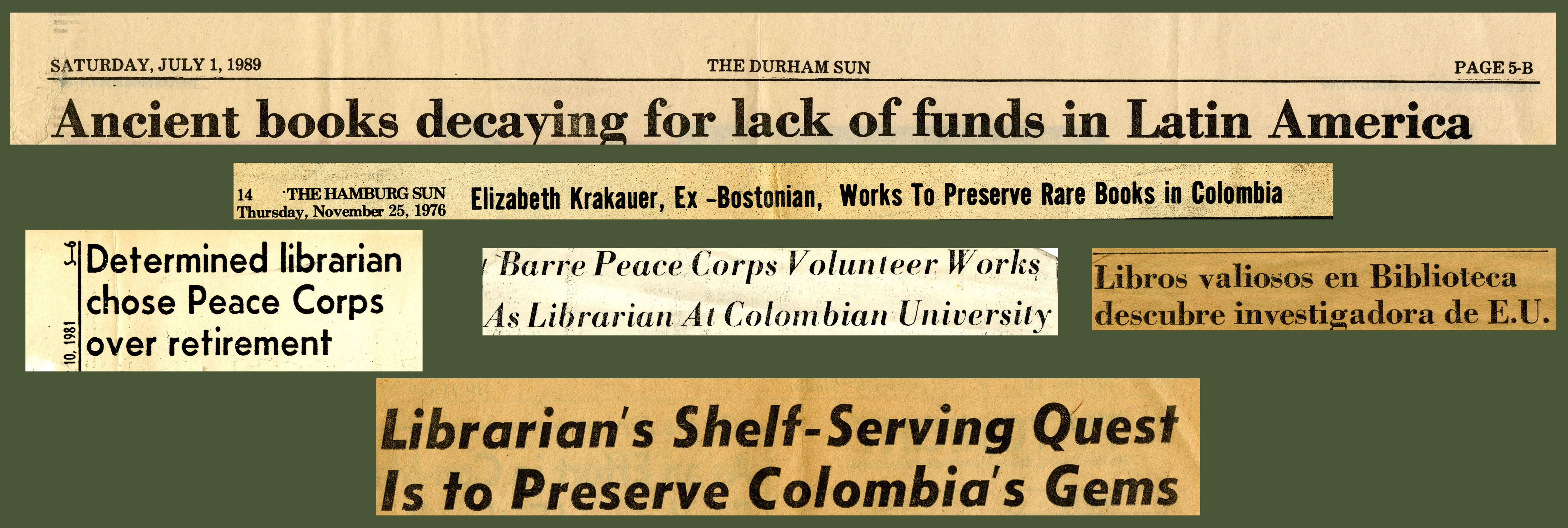
A selection of newspaper headlines from articles detailing Elizabeth Krakauer’s work in the Peace Corps.
Elizabeth Krakauer spent her retirement as a Peace Corps volunteer in South America with the Peace Corps. Krakauer completed three two-year enlistments, for a total of six years, starting in 1975. She spent five years in Colombia and one year in El Salvador. Krakauer’s Peace Corps service was non-traditional in both length of service and focus. After retiring as head librarian at Goddard College in Vermont, Krakauer utilized her skills in library science to organize and preserve rare book collections.
For the bulk of her service, Krakauer served as a Library Science Consultant organizing a rare book collection for the University of Los Andes in Bogota, Colombia. She identified, cataloged, and gathered all rare books in the University’s library. She also made recommendations on the conservation and preservation of these books. Following this, she worked with the Colombo-American Institute (Bi-Cultural Center USICA) and the University to organize the first rare books exhibit in the country.
Krakauer’s exhibit was so successful that several libraries and agencies requested her assistance to compile a national inventory of rare books in private and public Colombian collections. Krakauer worked with a number of organizations including the Anthropological Museum, UNICEF, San Buenaventura University, Seminario Mayor de Bogota, and the University of Cauca in Popayan. She organized training programs for employees of these institutions.
With the support of the Colombo-American Institute (Bi-Cultural Center USICA), Krakauer organized a second exhibit of rare books featuring the collections of other Colombian Universities. She joined the Colombian Library Association and worked as a library consultant. She subsequently published two catalogs about the rare book exhibits, wrote several articles, and made two videos on the preservation of rare books.
In 1976, the Secretary of Education of the Republic of El Salvador invited Krakauer to organize a National Library. She also attended the World Congress of Information Scientists in Mexico City in 1976.
Throughout her Peace Corps service, Elizabeth Krakauer helped build and preserve institutional holdings of rare books as well as assisted other Peace Corps Volunteers in constructing small libraries within their own communities.
For more information, please visit the Peace Corps Community Archive website. To use the collections or make a donation, please contact the AU Archives at archives [at] american.edu.

